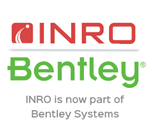What it takes to improve passenger experience with AI and plan journeys even if disruptions occur
Sebastian Pedavoli & Laura Acklandiene
Proxima, New South Wales
This presentation was delivered at the 2021 Online Conference Series and until October 2022 is only available to registered delegates and Content Access Pass holders via Interchange. For information on accessing this and other presentations please review the Content Access Pass options.
ABSTRACT
Public transport operators around the world are challenged by manual inefficient processes that put pressure on their teams. Over the last few years and especially over the last 12 months of the pandemic, they have become desperate to optimize their operations, yet ensure that the customer experience is frictionless and delightful.
No matter the size of the transport operator's network, especially if they support multi-mode journeys with complex route planning and a high volume of services and lines, the one thing that's common across all of them is the aim to improve overall passenger experience, and the quality and timeliness of communication.
That's why there is a huge interest in how AI can help them bring their ideal passenger journey experience to life and give them an edge in the market.
We will bring up Australian stories such as how Yarra Trams in Melbourne is removing frustrations associated with transport delays by proactively informing commuters about disruptions.
Disruption alerts aren't easy and have to be thought through, particularly if you're making sure they're personalised, relevant and timely.
However, with them becoming table stakes, helping passengers figure out an alternate mode is the next frontier. This requires a fair amount of the behind the scenes work, but can be done.
We will address these top three passenger experience challenges: legacy systems limit access to data, staff handle information manually, passengers receive information that's not real-time, relevant or on the channel they prefer.
The Impact of these challenges is felt every day, with passengers feeling out of control of being able to plan their journeys. However as one research paper has put it:'Smartphone-based real-time information reduces the actual and perceived wait times experienced by transit riders and can assist with trips in unfamiliar areas.' (Understanding factors influencing public transport passengers' pre-travel information-seeking behaviour)
Author(s)
Sebastian Pedavoli | Proxima
Sebastian is the Co-Founder and CEO of Proxima, a global software and conversational AI developer headquartered in Sydney, Australia.
With a vision to help brands engage their customers at scale through conversational AI technology, Sebastian co-founded Proxima in 2014. He has since overseen the creation of the firm's Iris Conversational AI platform, which powers intelligent, real-time, omni-channel conversations to help companies better serve their customers whenever, wherever.
In just seven years, Sebastian has led Proxima from its inception to become a global business supporting major brands across multiple industries around the world, including transport operators such as Transport for NSW, Yarra Trams and Metro Trains Melbourne.
Today, he continues to oversee the firm's strategic vision, product development and global expansion, and is also a regular speaker at industry events.
Away from work, Sebastian is a keen cyclist and regularly competes in cycling events.
Laura Acklandiene | Proxima
Laura Acklandiene has global experience scaling businesses that develop emerging technologies.
She works with visionary entrepreneurs that care about their customer success. Hence, Laura has joined Proxima, a conversational AI developer based in Sydney, as their Head of Growth, leading their go-to-market strategy.
Customer-centric roles have always interested her. Prior to Proxima, she did Business Development at Equiem (property technology startup), Partnerships at Startup Grind (events for entrepreneurs), Marketing at BMW Melbourne and Sales at AIESEC Australia (not-for-profit).








